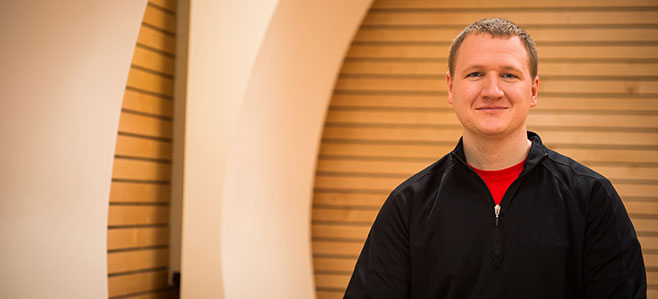
Travis Leanna an electrical engineering student at UW-Madison and participant in the PTSD study, served with the U.S. Marines in Iraq. He meditates daily and has completed training to be an instructor of yogic breathing techniques so he can help other veterans.
Post-traumatic stress disorder (PTSD) is an invisible wound of war. Thousands of veterans returning from Afghanistan and Iraq are suffering from memories of combat. While PTSD is suspected of causing an alarming increase in the suicide rate among combat veterans, conventional treatments are successful for only 50 percent of those treated.
Researchers at the Center for Healthy Minds at the Waisman Center at UW-Madison are taking a new approach to understanding the brain mechanisms of PTSD. Jack Nitschke, a psychiatry professor in the School of Medicine and Public Health, is studying brain differences to find ways to pinpoint the most effective treatment for individual soldiers.
The study, funded entirely through private support, is using complementary and alternative programs to more effectively treat PTSD. Study participants have a brain MRI done before and after beginning meditation or psychotherapy. Results of the study are showing improved sleep, a reduction in chronic pain and an increased sense of optimism, among other benefits.
[ar12]
